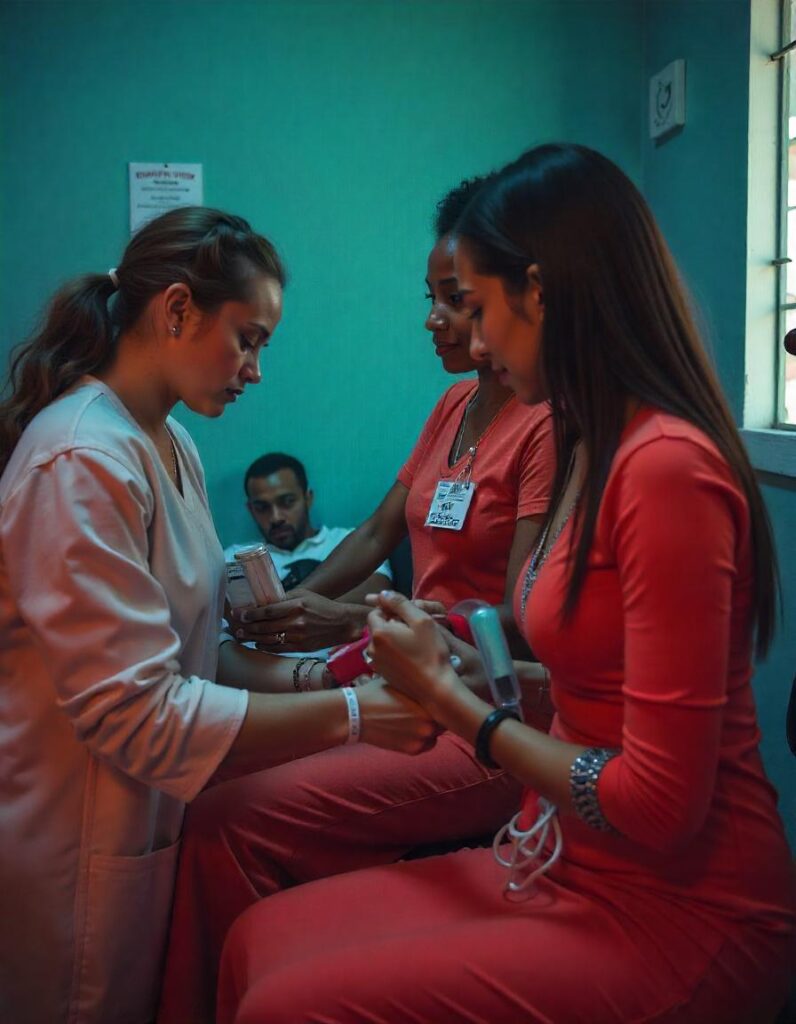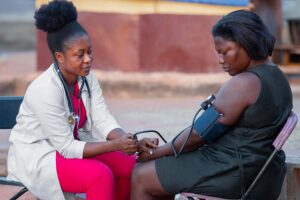Join the Blood Drive movement today and help save countless lives. In Nigeria, the need for blood is critical. Whether it’s for a patient undergoing surgery, a car accident victim, or a mother in labor, blood donations are a lifeline. If you’re thinking about becoming a blood donor, now is the perfect time to take action and be part of this life-saving cause. Here’s how you can get involved and make a difference in Nigeria.
Why Blood Donation Matters
Blood donation is crucial for maintaining adequate reserves in hospitals and clinics across the country. With a rapidly growing population and an increasing demand for medical procedures, blood shortages remain a persistent issue. By donating blood, you help ensure that there’s a steady supply available for those in need.
Whether you’re giving whole blood, plasma, or platelets, your donation directly impacts the lives of those who require immediate care. Blood donations can help treat a variety of medical conditions such as anemia, cancer, surgeries, and trauma recovery.
The Types of Blood Donations You Can Make
There are several ways you can donate blood, and each type plays a vital role in medical treatments. Here’s a breakdown of the most common forms of blood donation:
-
Whole Blood Donation
This is the most common type of donation. It involves donating all components of your blood, which can be separated later into red blood cells, plasma, and platelets. -
Plasma Donation
Plasma is the liquid component of blood and is used to treat burn victims, patients with clotting disorders, and those in need of plasma transfusions. Plasma donation centers are set up specifically for this type of donation. -
Platelet Donation
Platelets are essential for blood clotting. Patients undergoing chemotherapy or organ transplants often require platelet donations. -
Bone Marrow Donation
This is a more complex donation, but it can save lives by treating blood cancers like leukemia. -
Cord Blood Banking
Umbilical cord blood, collected immediately after birth, contains stem cells that can be used for various medical treatments, including leukemia and other blood-related conditions. -
Stem Cell Donation
Stem cells harvested from bone marrow or blood can help treat life-threatening diseases like leukemia, lymphoma, and other blood disorders.
How to Get Involved in a Blood Drive
Joining a blood drive is one of the simplest and most impactful ways to contribute to the cause. Many local hospitals, health organizations, and even corporate bodies organize regular blood donation events. Oneus, a leader in blood donation services in Nigeria, makes it easy for individuals to get involved.
Here’s a step-by-step guide to help you get started:

-
Find a Blood Donation Event
Oneus, along with other organizations, regularly hosts blood drives across Nigeria. Check their blood donation website or contact them at info@oneusng.com or +234 902 168 2822 for upcoming events. -
Check Eligibility
Before donating blood, ensure you meet the eligibility criteria. Common requirements include being healthy, at least 18 years old, and weighing a minimum of 50 kg. You’ll also need to check your blood group and genotype. -
Understand the Blood Donation Process
The blood donation process is simple and takes only about 30 minutes. After a brief medical assessment, blood is collected, and you’ll be able to rest while you hydrate. -
Post-Donation Care
After donating blood, it’s essential to follow recovery instructions. You’ll be advised to take it easy for a short while and hydrate to replenish the fluids lost during donation. -
Return Regularly
Donating blood regularly can save lives. Typically, you can donate whole blood every 56 days, plasma donation every 28 days, and platelet donation every 7 days.
Risks of Not Donating Blood
While blood donation is a noble act, the reality is that the consequences of not donating are severe. A lack of blood donors can lead to shortages in blood banks, particularly during emergencies or natural disasters. This can delay treatments, result in unnecessary loss of life, and put immense pressure on healthcare workers.
When blood donations decrease, people suffer from avoidable complications, especially in the treatment of cancer patients, accident victims, and pregnant women who require blood transfusions. It is also essential to note that not having a constant supply of blood puts Nigeria’s healthcare system at risk of being overwhelmed.
Oneus’s Commitment to Blood Donation in Nigeria
Oneus is passionate about increasing awareness and access to blood donation opportunities in Nigeria. Their dedication to providing high-quality blood products through their blood donation events, plasma centers, and blood drives is unmatched. Oneus not only helps save lives but also ensures that blood is safe, tested, and available for patients in need.
By partnering with hospitals, medical centers, and community organizations, Oneus is creating a nationwide network of donors, ensuring that no one has to wait for the life-saving blood they need.
Blood Donation Benefits
Besides the obvious benefit of saving lives, donating blood also offers personal health benefits. It’s been shown to improve cardiovascular health by reducing iron levels in the blood, lowering the risk of heart disease, and boosting overall well-being.
Moreover, regular blood donation helps to maintain healthy blood flow, and some studies suggest it may even improve your skin’s appearance by rejuvenating your circulation.
Give Blood, Save a Life
Now is the time to act. Join the blood drive movement in Nigeria and become part of something truly life-changing. Your donation can make a significant difference, not just for one person, but for entire communities.
Don’t wait—Give Blood, Save a Life. Book your donation today by contacting us at info@oneusng.com or calling +234 902 168 2822. Alternatively, you can visit our website www.oneusng.com.
Help us create a future where blood shortages are a thing of the past. Your donation can save a life—make it count!




